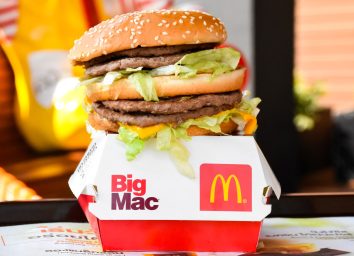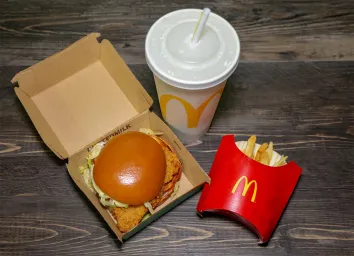What Eating a McDonald’s Burger Does to Your Body
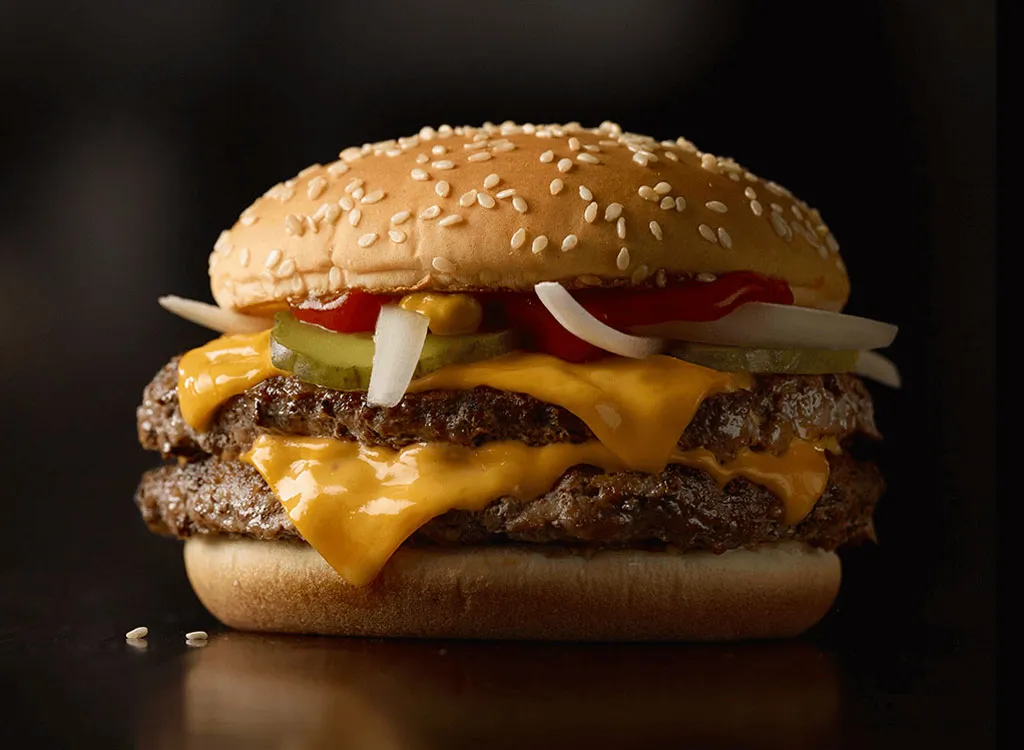
When you want to eat healthy, steering clear of burgers and other fried food seems like a no-brainer. Even on a cheat day, one burger could potentially derail all of your hard work. The nutritionally destructive nature of burgers on our health seems massive compared to many other foods, leading us to wonder what actually happens when we down one of these calorie bombs—like when we eat a McDonald’s burger.
To help us understand the immediate consequences of eating a burger, we consulted Amy Goodson, MS, RD, CSSD, LD, and author of The Sports Nutrition Playbook, to discuss what happens to our bodies when we chow down on burgers. All burgers aren’t created equal, so to give us some perspective, Goodson helped us understand what happens to our body after dining at McDonald’s and eating their classic Big Mac.
While Goodson gave us a standardized approach with a burger anyone could get anywhere across America, the effects of eating this sandwich could be felt whether you grill up one at home, or indulge in some of the worst burgers ever at a McDonalds near you. Whether you love the fast-food chain or just want to know more about how your body processes this food, be aware of these six key changes that occur the moment you finish eating a McDonald’s burger. For more tips, be sure to steer clear of these 100 Unhealthiest Foods on the Planet.
You’ll feel full for longer.
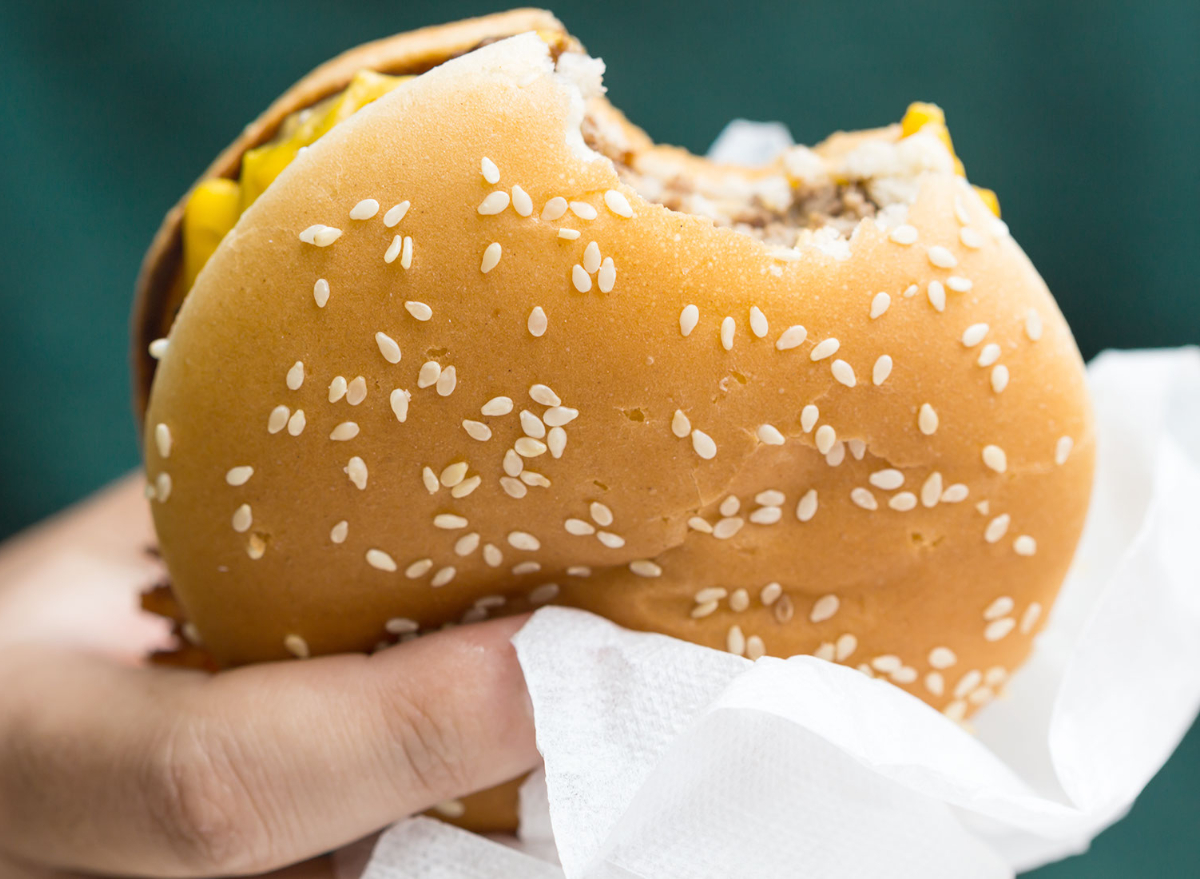
After you polish off a McDonald’s burger, that feeling of incredible fullness hits many of us. This phenomenon makes sense when we learn what is happening to our digestive system.
“When you consume more calories, it takes longer to digest all the food, but that does not ‘slow down your metabolism,'” Goodson says. “Foods that are higher in fat slow down digestion and can leave people feeling full for a longer period of time.”
If you have to go for an extended period without eating, this McDonald’s burger might just come in handy.
Looking for other healthy McDonald’s tips? Check out our list of 7 Healthiest McDonald’s Orders, According to a Dietitian.
You’ll exceed your daily sodium.
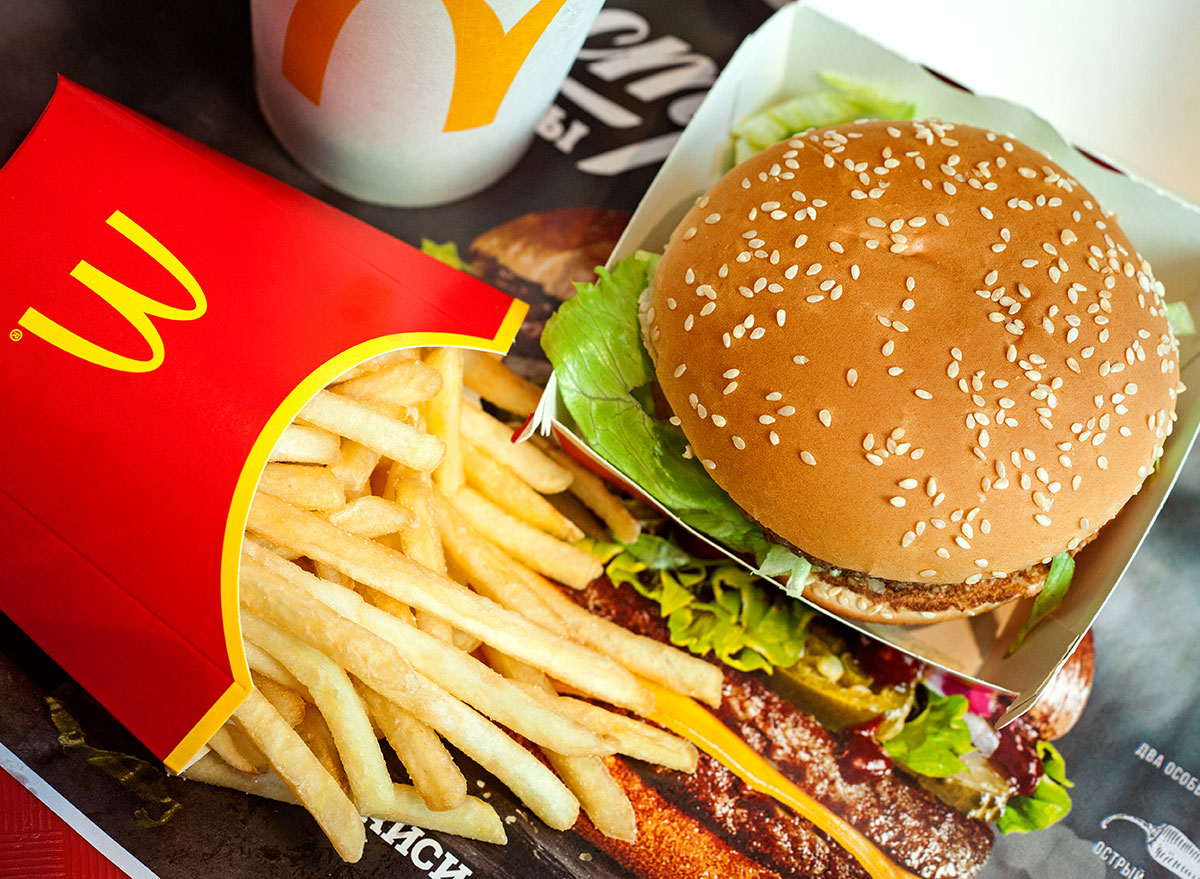
Fast food restaurants notoriously jampack their meals with extra salt, leading many to rally against the immediate and prolonged health hazards of consuming so much sodium in one sitting. Eating at McDonald’s proves no different.
“The average person should be consuming 2300 mg of sodium or less per day, and those with high blood pressure just keep their sodium intake to 1500 mg or less per day,” Goodson says. “A Big Mac has 1010 mg of sodium which is almost… a normal person’s intake. Considering most people will consume sodium in other meals, [eating] a Big Mac could likely put you over your daily recommended intake.”
You’ll stabalize your blood sugar.
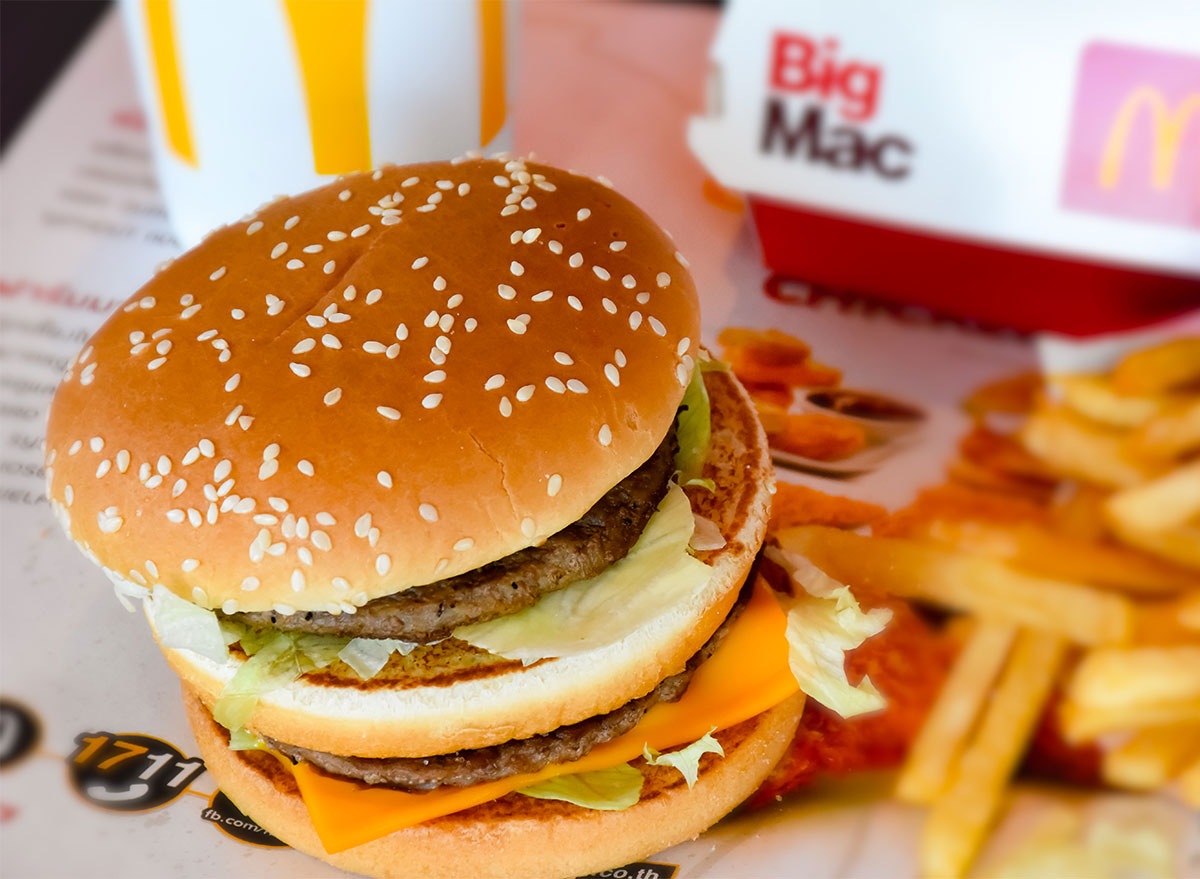
You might guess that the immediate influx of fat, carbs, and more from a Big Mac would cause a massive blood sugar spike. According to Goodson, eating the sandwich creates the opposite effect.
“[Due] to the protein and fat content in a Big Mac—it should actually stabilize blood sugar because of having a pretty balanced ratio of carbohydrates, protein in fat,” Goodson said.
Next time you need an excuse to indulge a bit, feel a little better in enjoying a guilty pleasure burger.
Your triglyceride levels will spike.
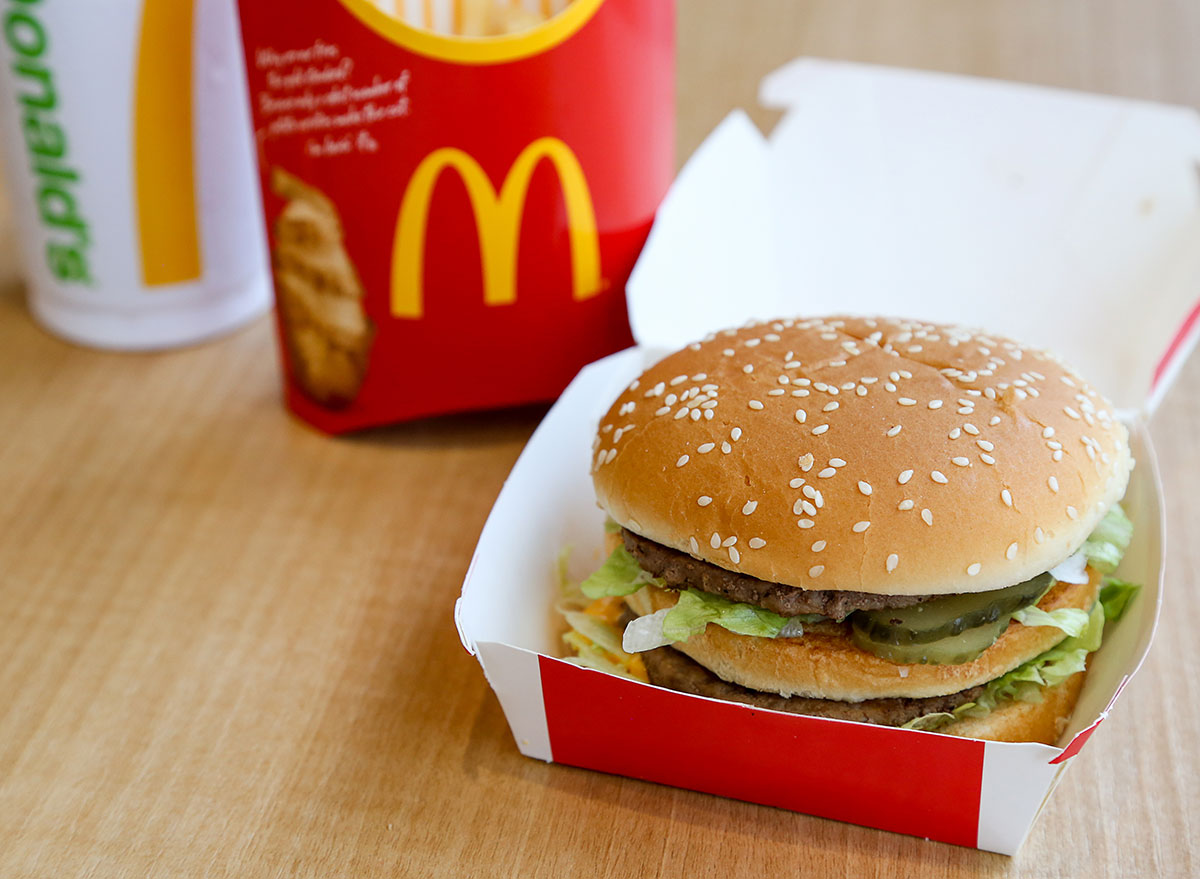
Even if you can get away with the burger stabilizing your blood sugar, don’t expect your fat levels to be as forgiving.
“When you eat a high-fat food and/or meal like a Big Mac (30 grams of fat), your blood levels of triglyceride will raise due to the fat content in the meal, then they will clear out within a few hours,” Goodson says. “The challenge becomes when you eat lower fiber, high-fat foods on a regular basis, as this can lead to higher blood levels of triglycerides on a regular basis and can contribute to plaque build-up in the arteries long-term.”
Avoid indulging in burgers often, or else you should expect to have a plethora of problems down the road due. Instead, why not make one of these 13+ Best Healthy Hamburger Recipes for Weight Loss?
You’ll get a quick intake of iron.
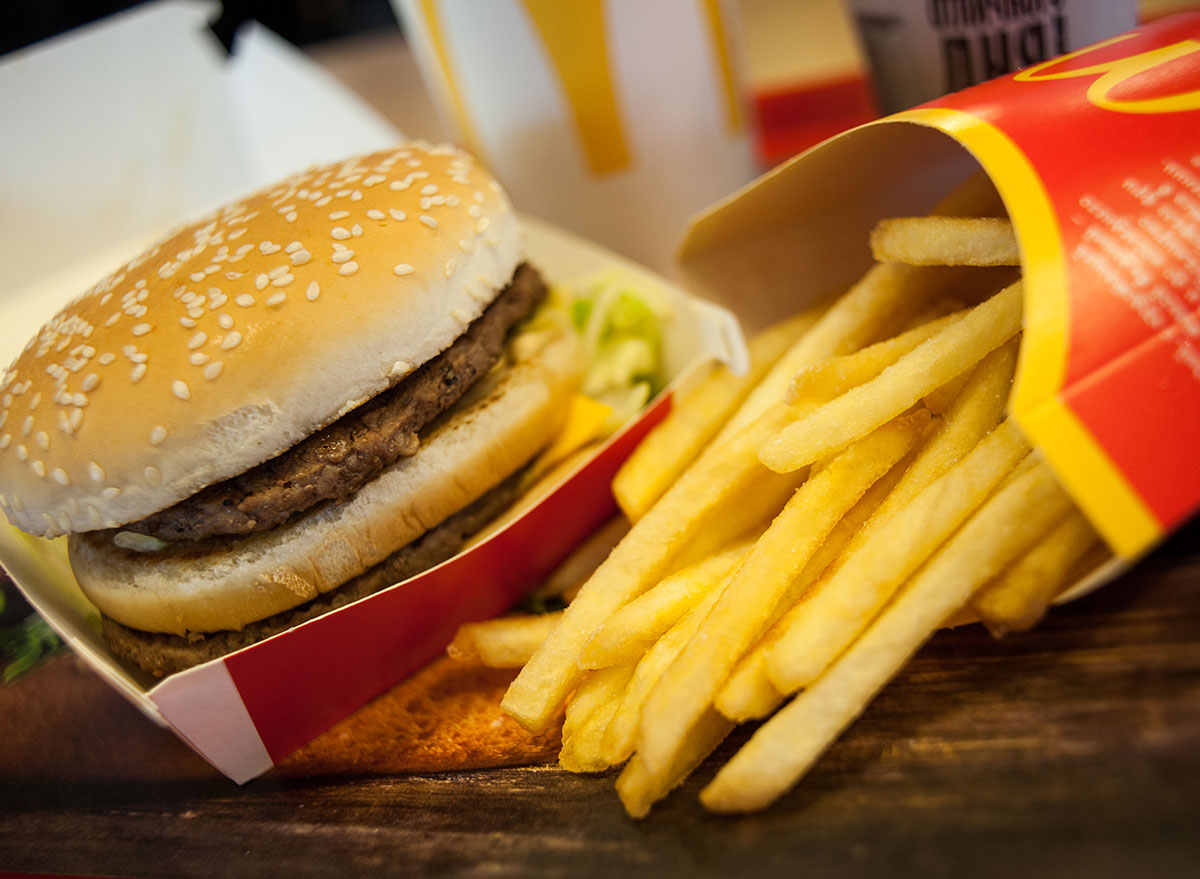
“Beef is an excellent source of iron and one Big Mac provides you with 25% of the Daily Value,” Goodson says.
If you feel sluggish and could use some iron, indulging in a Big Mac would do the trick. If you feel down and could use the benefit of ingesting an extra dose of iron, a Big Mac has your name on it during your next McDonalds dining experience.
You’ll immediately boost your protein levels.
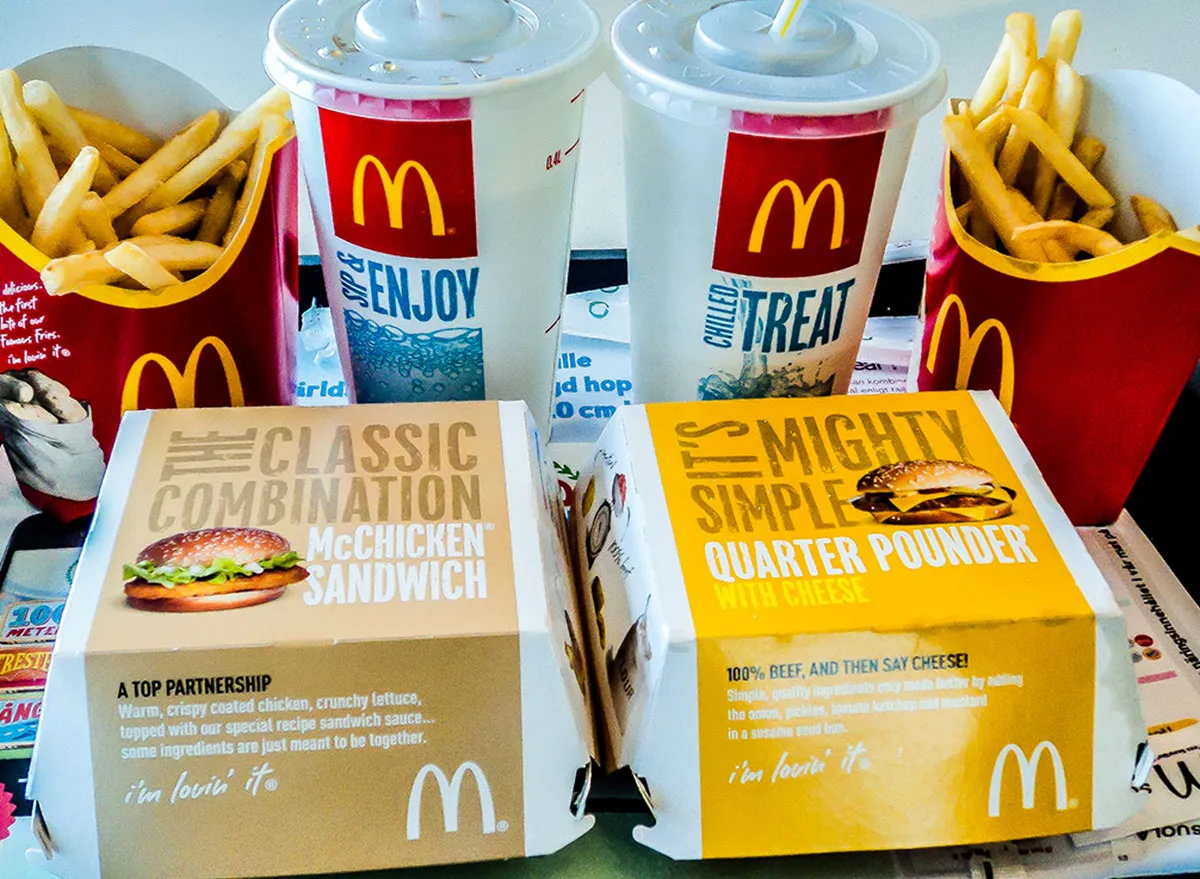
“With 25 grams of protein, eating a Big Mac can help you reach your protein needs for the day. Protein needs are based on weight and activity level, but a general recommendation is consuming 25 to 30 grams at meals,” says Goodson.
If you want to bulk up, enjoying that burger might not hurt when it comes to maxing out your gains, and sneaking in a burger shouldn’t make you feel too guilty.
“I recommend people eat by the 80/20 rule meaning that 80% of the time focus on eating nutrient-rich foods like fruit, vegetables, high-fiber carbohydrates, lean protein, and healthy fats and then 20% of the time, enjoy foods that are likely higher in sugar, fat, and calories and lower in nutrients,” Goodson says. “Also, eating a smaller burger with a side salad and water can balance out the meal.”
For more healthy eating tips, be sure to sign up for our newsletter.
